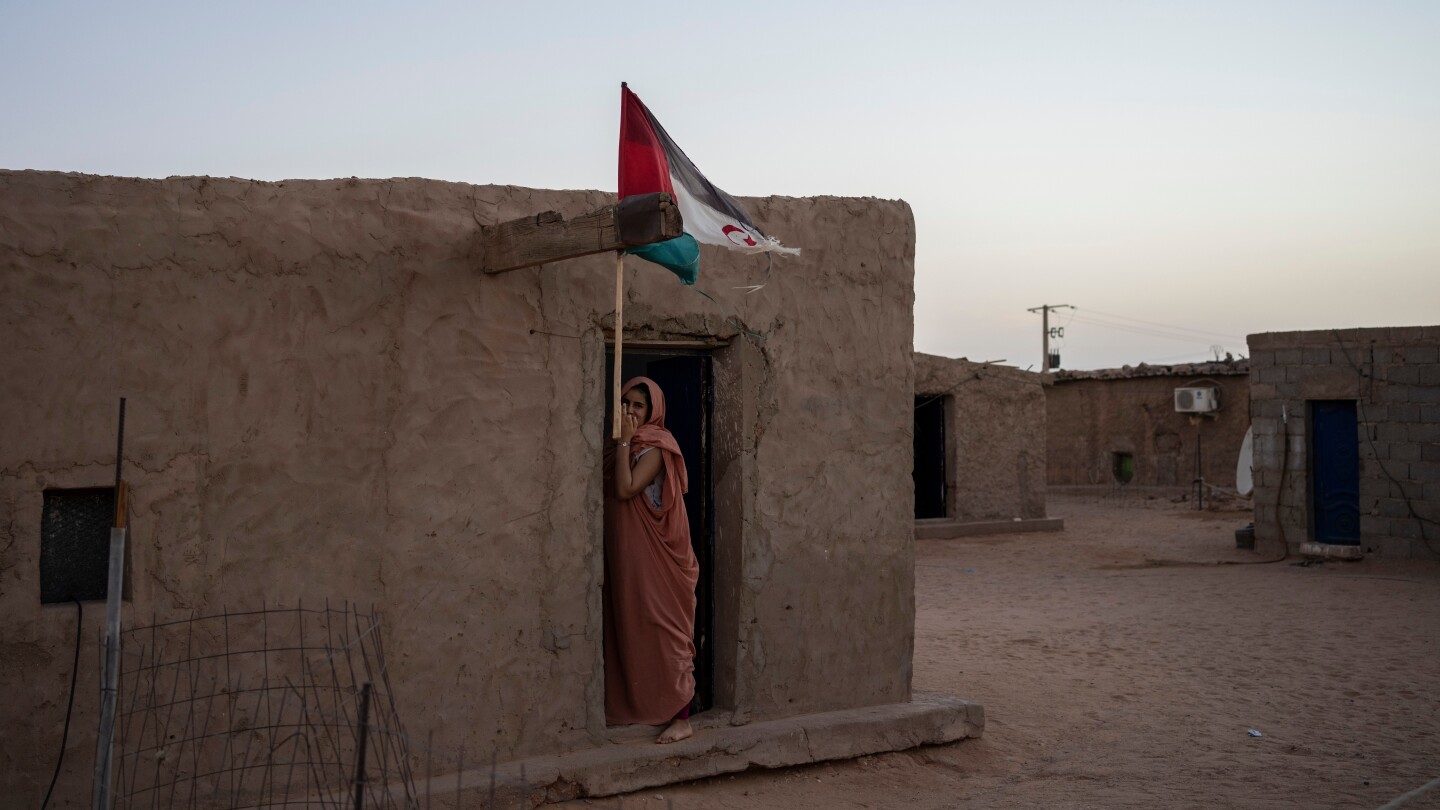Although the vote was divided, the resolution offers the strongest endorsement yet for Morocco’s plan to keep sovereignty over the territory, which also has backing from most European Union members and a growing number of African allies.
“The United States welcomes today’s historic vote, which seizes upon this unique moment and builds on the momentum for a long, long overdue peace in Western Sahara,” Mike Waltz, U.S. ambassador to the U.N., said in his remarks after the vote.
The resolution refers to Morocco’s plan as a basis for negotiation. As with similar resolutions in previous years, the text makes no mention of a referendum on self-determination that includes independence as an option, which is the solution long favored by the pro-independence Polisario Front and its allies, including Algeria, Russia and China.
In a rare speech broadcast on Moroccan television after the vote, King Mohammed VI celebrated the result and pledged to supplement Morocco’s proposal with additional details. He also called for dialogue with Algeria’s President Abdelmadjid Tebboune.
“We are starting a new chapter in the process of consolidating the Moroccanness of the Sahara, and closing, once and for all, this fabricated conflict,” the king said.
The U.S., which sponsored the resolution, led 11 countries in voting in favor, while three countries — Russia, China and Pakistan — abstained. Algeria, Polisario’s primary benefactor, did not vote.
Sidi Mohamed Omar, the Polisaro ambassador to the U.N., thanked the allies who abstained and Algeria for protesting the vote, saying this “made it very clear that today’s resolution does not imply any recognition of Morocco’s sovereignty over Western Sahara.”
“In other words, and in plain English, it does not imply recognition of Morocco’s illegal military occupation of Western Sahara,” he added.
Western Sahara is a phosphate-rich stretch of coastal desert the size of Colorado that was under Spanish rule until 1975. It’s claimed by both Morocco and the Polisario Front, which operates out of refugee camps in southwestern Algeria and claims to represent the Sahrawi people indigenous to the disputed territory.
Amar Bendjama, the Algerian ambassador to the U.N., said that while the resolution was an improvement on previous iterations, it “still has a number of shortcomings.”
The resolution says “genuine autonomy under Moroccan sovereignty could constitute a most feasible solution.”
The measure also renews the U.N. peacekeeping mission in Western Sahara for another year, as has been done for more than three decades. Prior extensions, however, haven’t included a reference to Morocco and its allies’ preferred outcome.
Trump envoys reiterate support for Morocco
The vote came weeks after U.S. President Donald Trump’s special envoy Steve Witkoff jolted the region by suggesting on CBS’ “60 Minutes” that peace between Morocco and Algeria could be reached within 60 days. The neighboring countries aren’t at war, but haven’t had diplomatic relations for four years.
Massad Boulos, Trump’s senior adviser for African affairs, reiterated U.S. support for Morocco’s plan in an interview with Sky News Arabia this week.
The U.N. resolution calls on all parties involved to “seize this unprecedented opportunity for a lasting peace.” Depending on progress, it asks Antonio Guterres, the Secretary General, to review the peacekeeping mission’s mandate within six months.
The shift could unsettle a long-stalled process that for decades has eluded resolution, despite a U.N. peacekeeping mission designed to be temporary. Demonstrations have ensued in Sahrawi refugee camps in Algeria this week, where people have vowed not to give up their fight for self-determination.
A lasting stalemate
Morocco controls nearly all of Western Sahara, except for a narrow strip known as the “free zone” that lies east of a Moroccan-built sand wall.
A 1991 ceasefire was meant to pave the way for a referendum on self-determination, but fighting over voter eligibility prevented it from taking place.
Over the years, Morocco has transformed the disputed territory, constructing a deepwater port and a 656-mile (1,055-kilometer) highway. State subsidies keep food and energy prices low, and the population has ballooned as Moroccans settle in cities such as Dakhla and Laayoune.
Polisario withdrew from the ceasefire in 2020 after clashes near a road Morocco was paving to Mauritania.
The group has since regularly reported military activity, while Morocco has mostly denied open conflict. The United Nations calls it “low-level hostilities.”
Pressure builds as priorities shift
The conflict is the driving force in North African diplomacy. Morocco sees support for its autonomy plan as a benchmark for how it gauges its allies.
Last October, U.N. envoy Staffan de Mistura suggested partitioning Western Sahara, a proposal neither side accepted. He urged Morocco to clarify what autonomy would entail and warned a lack of progress might raise questions about the United Nations’ role and “whether there is space and willingness for us to still be useful.”
The push to reassess the United Nations Mission for the Referendum in Western Sahara comes as the United States slashes funding for U.N. programs and agencies, including peacekeeping.
U.S. officials are taking an a la carte approach to funding, picking which operations and agencies they believe align with Trump’s agenda and which no longer serve U.S. interests. They argue that the U.N.’s budget and agencies are bloated. They pledge to halt new contributions pending a review of every U.N. agency and program.
___
Metz reported from Rabat, Morocco.
window.fbAsyncInit = function() {
FB.init({
appId : '870613919693099',
xfbml : true,
version : 'v2.9'
});
};
(function(d, s, id){
var js, fjs = d.getElementsByTagName(s)[0];
if (d.getElementById(id)) {return;}
js = d.createElement(s); js.id = id;
js.src = “https://connect.facebook.net/en_US/sdk.js”;
fjs.parentNode.insertBefore(js, fjs);
}(document, ‘script’, ‘facebook-jssdk’));
